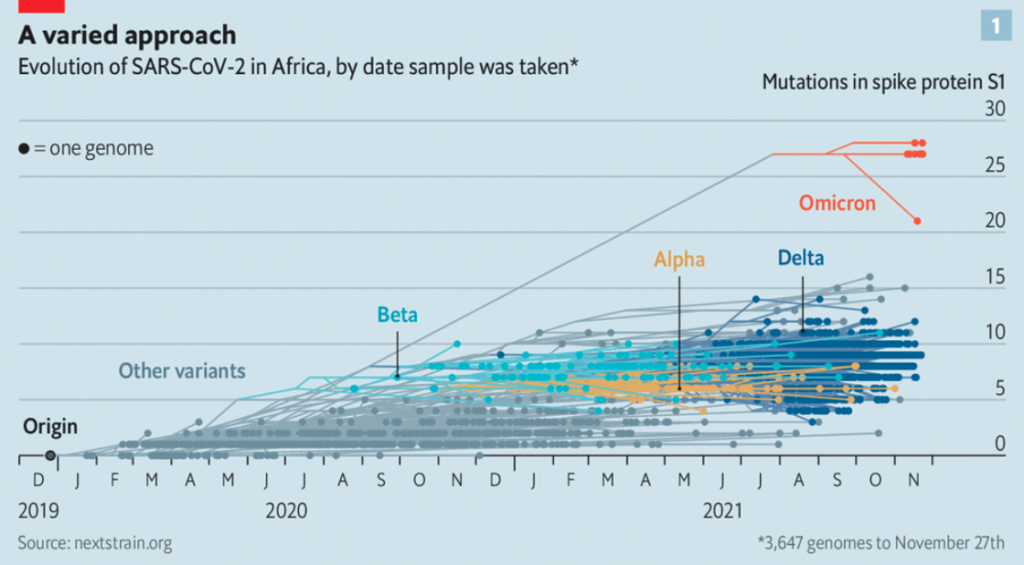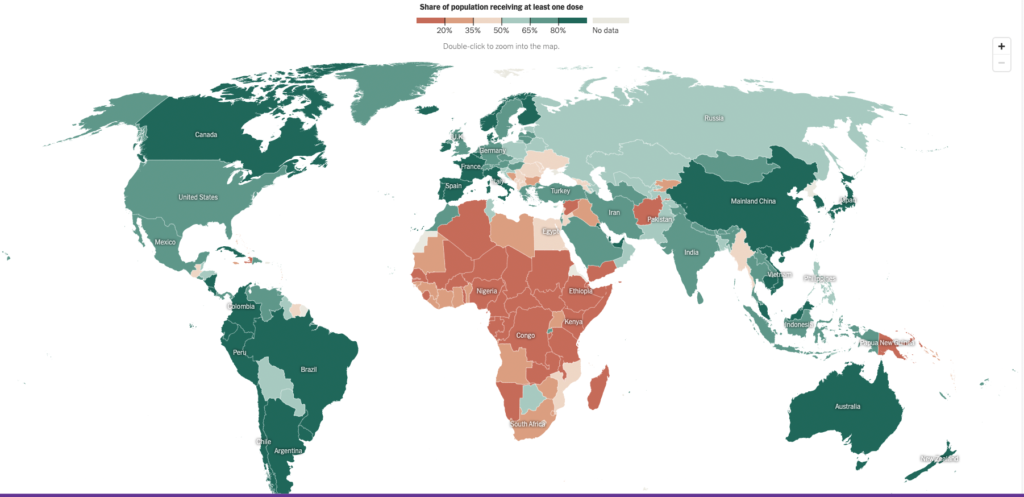In 2023 will the COVID pandemic be in the rear view mirror, just a footnote to history? Or will it still be disrupting our lives?

Firstly its clear that COVID is endemic in almost all countries and will likely circulate and evolve for a very long time.
Causes for Comfort in 2023
The current Omicron outbreak may give a degree of comfort. While it spreads easily, it’s health effects are less overall than previous variants. This appears to lend support to a hundred year old theory that pathogens to evolve to be less lethal over time. However that theory has been debunked. In fact it’s more like a random walk. Even the short history of COVID illustrates this: Alpha and Delta were more virulent than the strain first found in Wuhan, China. Also the second wave of the 1918 influenza pandemic was far more deadly than the first. So endemic COVID may not be at a background level that can be ignored.
In addition there is a common perception that catching Omicron will protect against future variants. That’s not necessarily the case. We now know that evolution of the virus has not taken a linear path to from variant Alpha to Omicron. In fact, while Alpha, Beta and Delta were related, the Omicron variant appears to have evolved independently of the others (see figure below). That’s why catching Delta didn’t confer immunity to Omicron.

So these particular comforts are illusory. However advances in medical technology and knowhow should be a real source of comfort. Not only have the vaccines proven to be remarkably effective but new treatments have been developed such as this new Pfizer pill and Merck’s molnupiravir. These treatments are shown to achieve significantly better health outcomes in trials, measured by metrics such as length of hospital stay.
Ongoing Concerns re COVID Pandemic
A cause for risk management concern is that we are still in a relatively early phase of this new disease. While the virus will likely mutate to be more transmissible and to evade our immune systems, it could become more lethal.
A second cause for concern is Long Covid. While catching Omicron may be a mild disease for many. that’s not true for everybody. The mysterious group of Long Covid symptoms is reported by researchers to afflict one in four adults and one in seven children.
A third cause for concern is that large parts of the world remain unvaccinated, especially in Africa (see figure below). Many people will have caught COVID now, but the pandemic will sputter on, ready to resurge.

Managing Risks from New Diseases
We remain susceptible to new viruses and variants spilling over from animals. Evidence is accumulating from analysis the initial genome sequences, that the virus was most likely of animal origin. It most likely originated in bats, infecting an intermediate animal host, then spilling over into to humans via the wild food markets in Wuhan. Two-way transmissions of COVID between mink and humans at Dutch mink farms shows how easy that can be.
While the wild food trade exists in it’s current form in China and other countries, placing caged animals of all varieties in close proximity, there is a high risk of further outbreaks of COVID or new diseases from spillover events. These are not easy matters to address. As we know from our own experience, when traditional sources of wild food are involved, sensitive issues of cultural practice arise.
Cause for Optimism
On the optimistic side there are many new developments which give cause for hope for effective risk management:
- given the remarkable speed of development of the COVID vaccines, new vaccines may be developed quickly to counter new variants
- new and more effective treatment methods are being developed to care for those who have caught COVID
- we have learned what works from the current pandemic to control COVID and its economic impacts
- as individuals and enterprises we have worked out how to cope with the disruptions of COVID lockdowns and self-isolations
- the Chinese authorities are currently hyper-vigilant about the emergence of any new respiratory disease. So the likelihood of a new spillover event in China will be reduced over the next few years
COVID Pandemic Prediction for 2023
So what does the future look like? Overall my forecast for 2023 and beyond is that:
- endemic: COVID is here to stay, both in New Zealand and globally
- ongoing death toll: like the flu, it will kill hundreds annually in New Zealand. This will afflict mainly the elderly and infirm, and scores of thousands around the world every year
- annual boosters: annual vaccinations or boosters will be available, but take-up will wane over time
- new variants: occasionally new and nastier variants of COVID will emerge, causing mass misery and major business disruptions
- vaccinations and new treatments will protect many in rich countries, but this disease will create ongoing demands on health systems
- poor countries: populations in poor countries will suffer from the additional disease burden and with poor levels of healthcare access will be a large reservoir for new variants to emerge fro
- return to normal: life will return to a new normal, recognisably similar to the old, but with a new hazard on the risk landscape
- changes to cities: some of the cultural practices that we have adopted to cope with COVID will remain, such as working from home. This will have profound long term impacts on the design of cities, public transport, commercial property and organisational leadership.
- China: the current stamp it out approach in China will eventually be abandoned, perhaps once domestically manufactured vaccines of adequate efficacy are developed
Action to Manage Risks
A danger is that memory fades and vigilance along with it. While the form of each pandemic is not easily predicted, disruptive global pandemic will occur again. If not COVID, then SARS, Ebola, Avian flu, or some other new disease spilling over from wild animals.
The chances of a pandemic of the scale of COVID are reported to be between 2.5-3.3 percent, which means a 47-57 percent chance of another global pandemic of COVID scale in the next 25 years. The next outbreak arising from spillover of a wild animal disease could be just around the corner.
As global institutions, nations, enterprises, communities and families – we need to be prepared for that.
About the Author – Kevin Oldham
Kevin Oldham is a director of Navigatus with a depth of experience in helping clients to achieve success in an uncertain context. A brief profile for Kevin can be found here.

Comments
No comments yet.